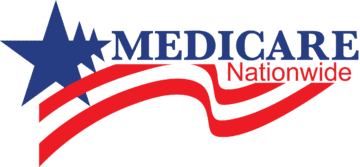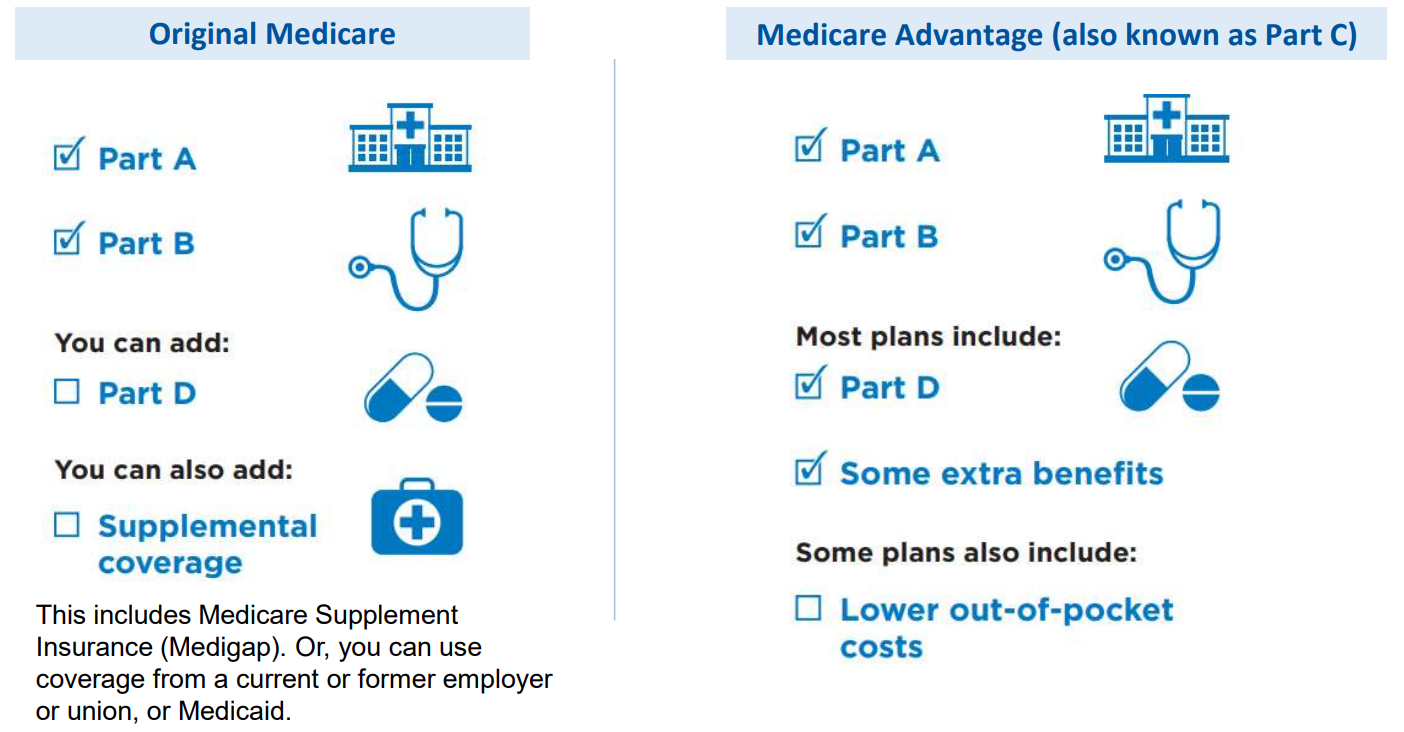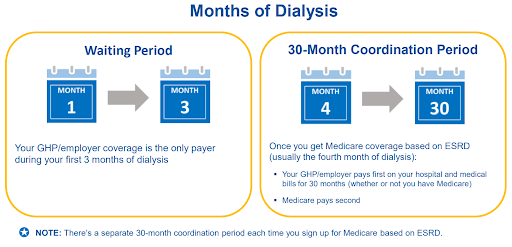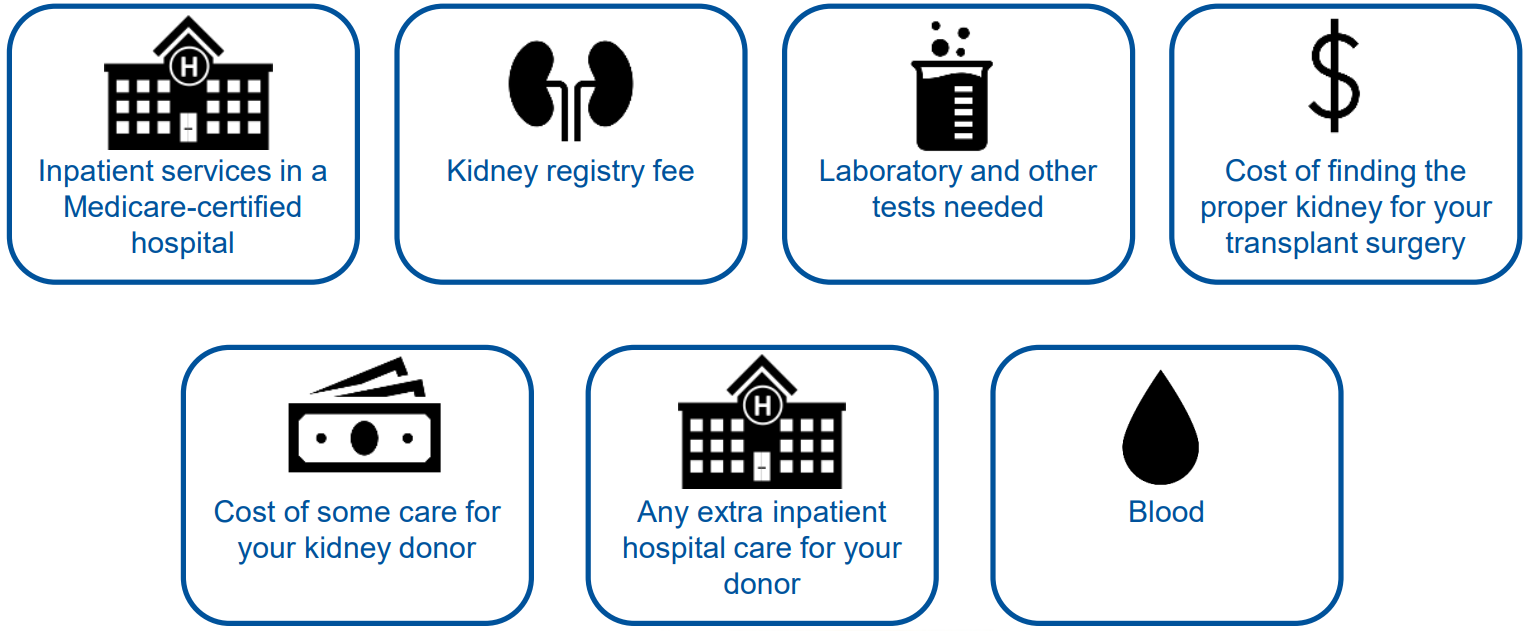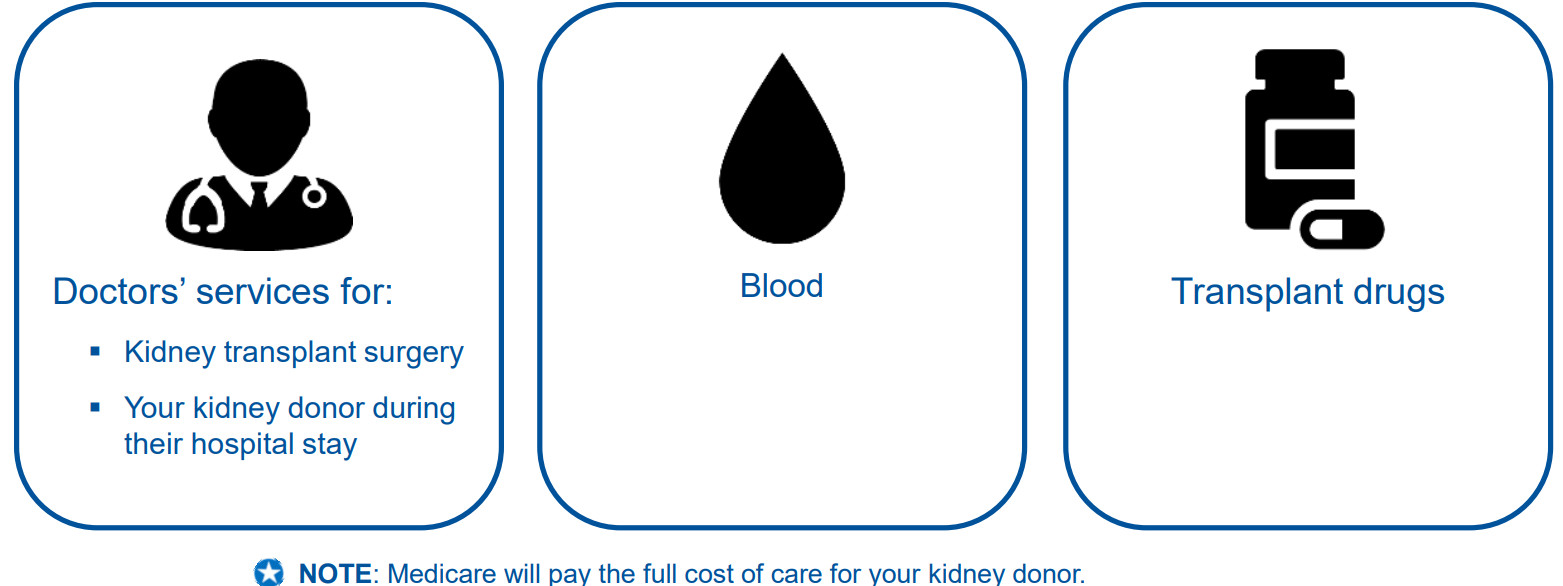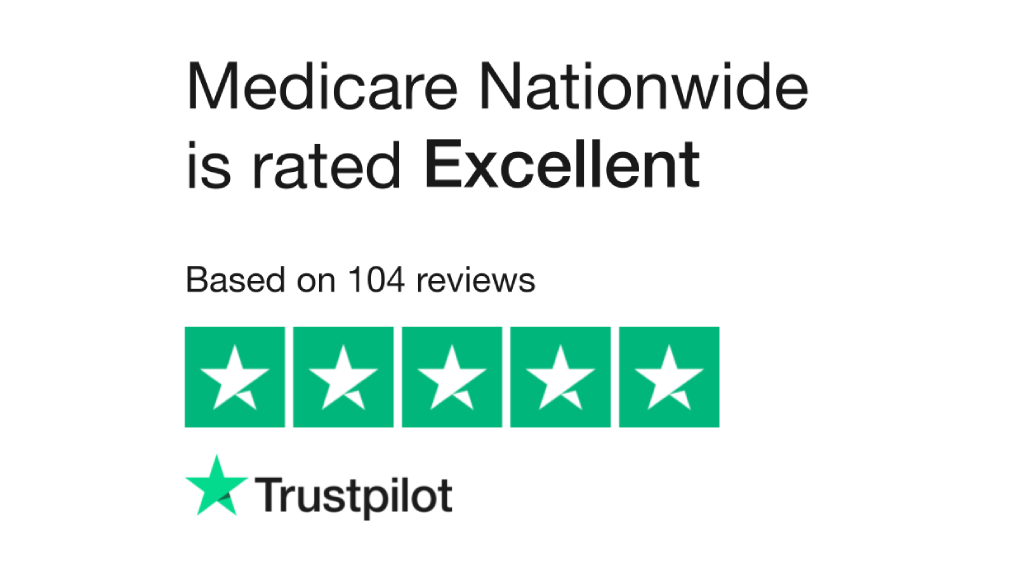Understanding End-Stage Renal Disease (ESRD)
ESRD, or end-stage renal disease, marks a critical phase of kidney dysfunction characterized by permanent failure, necessitating ongoing dialysis treatments or the consideration of a kidney transplant. Dialysis serves as a vital intervention to purify the blood in instances where the kidneys no longer perform this function adequately. Alternatively, a kidney transplant involves the surgical implantation of a healthy kidney from a donor into the recipient’s body. For those who opt for conservative management, the focus lies on sustaining symptom management and overall care without resorting to dialysis or a transplant.
Medicare Eligibility Based on End-Stage Renal Disease (ESRD)
Medicare eligibility criteria for individuals with End-Stage Renal Disease (ESRD) are not age-restricted. If your kidneys are no longer functional and you require regular dialysis or have undergone a kidney transplant, you may qualify for Medicare.
This eligibility extends to individuals who have met specific work requirements under Social Security, the Railroad Retirement Board (RRB), or as government employees, as well as those already receiving or eligible for Social Security or RRB benefits, or who are dependents of eligible individuals. Medicare covers dialysis services for individuals with Medicare who have Acute Kidney Injury (AKI).
To receive complete coverage, both Medicare Part A (Hospital Insurance) and Part B (Medical Insurance) are necessary. For more details on enrollment and eligibility, individuals can reach out to Social Security at SSA.gov or the RRB at RRB.gov, or by phone at 1-877-772-5772 (TTY: 1-312-751-4701).
Medicare Choices: Original Medicare
If you opt for Original Medicare with ESRD:
- You’re free to visit any Medicare-accepting doctor, supplier, or facility taking new patients.
- After meeting your deductible, Medicare covers its portion, and you handle coinsurance/copayment for eligible services and items.
- You have the option to enhance coverage by enrolling in a Medicare drug plan (Part D).
Medigap:
- Offered by private insurers, Medigap supplements Original Medicare by covering uncovered expenses such as deductibles or coinsurance.
NOTE: If you’re below 65 and have Medicare due to disability or ESRD, obtaining the desired Medigap policy might be restricted until you reach 65.
Medicare Choices: Medicare Advantage
Medicare Advantage provides an alternative route to receive your Medicare Part A and Part B benefits. These plans typically incorporate drug coverage (Part D) and are mandated to encompass all services covered by Original Medicare. Additionally, they may extend benefits beyond those of Original Medicare, such as vision, hearing, and dental services. However, it’s important to note that many Medicare Advantage plans require you to utilize healthcare providers within their designated network and service area. Once you’re enrolled in Medicare Part A and Part B, you become eligible to enroll in a Medicare Advantage Plan.
Medicare Choices: Medicare Drug Coverage (Part D)
Part D drug coverage is provided by private companies approved by Medicare. There are two avenues for accessing Medicare drug coverage: standalone Medicare drug plans complementing Original Medicare or certain types of Medicare health plans, and Medicare Advantage Plans incorporating drug coverage. Enrollment in a Medicare Advantage Plan with drug coverage necessitates having both Medicare Part A and Part B.
Medicaid Eligibility Based on End-Stage Renal Disease (ESRD)
Medicaid may offer assistance in covering the costs of dialysis treatments for individuals with End-Stage Renal Disease (ESRD). To apply for Medicaid, individuals can consult the social worker at their hospital or dialysis facility, or directly contact their state Medicaid office.
Enrollment in Medicare for Individuals with End-Stage Renal Disease (ESRD)
How to Enroll in Medicare Part A (Hospital Coverage) and Part B (Medical Coverage)
Ensure that your doctor or dialysis facility fills out the “End-Stage Renal Disease Medical Evidence Report Medicare Entitlement and/or Patient Registration” form (Form CMS-2728). You can either go to your nearby Social Security office or visit SSA.gov/medicare/sign to get assistance.
Eligibility for Medicare Based on ESRD, Age, & Disability
If you are enrolled in Medicare either through age or disability and subsequently develop End-Stage Renal Disease (ESRD):
- Entitlement due to ESRD may waive any penalty for not enrolling in Part B initially.
If you missed your initial enrollment period, you’ll have another chance to enroll during a second Initial Enrollment Period (IEP) for Part B.
- If you initially enrolled in Medicare due to ESRD and later reach the age of 65:
- You’ll maintain continuous coverage.
- If you haven’t enrolled in Part B, you’ll be automatically enrolled (with the option to opt-out).
- Any late enrollment penalties for Part B would be waived in this scenario.
When Medicare coverage for End-Stage Renal Disease (ESRD) comes to an end or continues, the following conditions apply:
- Coverage ends for individuals eligible solely due to ESRD:
- 12 months after the month in which regular dialysis is no longer required, or
- 36 months after a successful kidney transplant
- Coverage continues seamlessly without needing a new application if:
- Regular dialysis restarts or a kidney transplant occurs within 12 months after regular dialysis stopped, or
- Regular dialysis begins again or another transplant is received within 36 months after the initial transplant
If you stop and then resume dialysis or receive another kidney transplant, a new Initial Enrollment Period (IEP) begins. You can enroll again under the same conditions as described in Lesson 1, with no premium penalty for later enrollment during the new IEP. However, you must file another application.
Joining a Medicare Advantage Plan is possible during:
- Open Enrollment Period: October 15–December 7, with coverage starting on January 1 if the plan receives your request by December 7.
- Medicare Advantage Open Enrollment Period (if you’re already in a Medicare Advantage Plan): January 1–March 31 each year, with coverage usually starting the 1st of the month after the plan receives your request.
For joining Medicare Drug Coverage (Part D):
- Initial Enrollment Period (IEP): A 7-month period when you first become eligible for Medicare, with coverage starting concurrently with your Medicare Part A and/or Part B coverage.
- Open Enrollment: October 15–December 7 each year, with coverage beginning on January 1 of the following year.
Medicare & Group Health Plan (GHP) Coverage
Enrollment Considerations: 30-Month Coordination Period
If you have coverage under a Group Health Plan (GHP), you have two options:
Option 1:
During the 30-month coordination period, you can enroll in Medicare to assist with various out-of-pocket expenses, including the GHP yearly deductible, copayment, coinsurance, immunosuppressive drugs, and coverage for a living donor.
Option 2:
Alternatively, you can postpone enrollment until after the coordination period ends. If you delay signing up for both Part A and Part B, you can enroll at any time without facing waiting periods or penalties. However, if you sign up for Part A but delay Part B, you’ll have to wait until the next General Enrollment Period (GEP) and may incur a penalty. Additionally, if you enroll in Part A (or both Part A and Part B), you can postpone enrolling in Medicare drug coverage (Part D) if you have alternative creditable drug coverage. Nevertheless, if you opt out of Part D or already have creditable drug coverage, you may face penalties if you enroll in Part D later.
Enrollment Considerations: Transplant Drugs
For individuals eligible for Medicare solely due to End-Stage Renal Disease (ESRD), Medicare Part B will cover transplant drugs only if you had Part A at the time of your transplant and underwent the procedure at a Medicare-certified facility. Under Part B, Medicare covers 80% of the costs, leaving you responsible for the remaining 20%.
If you fail to meet the conditions for Part B coverage of transplant drugs, you may still obtain coverage by enrolling in drug coverage, but this coverage won’t extend to transplant drugs that would otherwise be covered by Part B if you had it.
Additionally, if you have drug coverage, your Part B coinsurance expenses won’t contribute towards meeting the requirements for Part D catastrophic coverage.
Immunosuppressive Drug Benefit
The Consolidated Appropriations Act (CAA) extends coverage for immunosuppressive drugs for Medicare kidney transplant recipients beyond the current 36-month limit imposed by existing law. This extension, under Medicare Part B, exclusively covers immunosuppressive drugs, excluding coverage for any other medical items or services. Eligibility is for individuals whose Medicare coverage for immunosuppressive drugs ends or will end, 36 months following their kidney transplant, provided they are not enrolled in certain other health coverage plans.
Key points of the immunosuppressive drug benefit include:
- Enrollment is not restricted to specific periods; eligible individuals can enroll, disenroll, or re-enroll on a monthly basis.
- Coverage is limited to immunosuppressive drugs and does not encompass other Part B benefits or services.
- Applicants must declare that they do not possess, nor expect to acquire, certain other types of health coverage.
- The premium for this benefit is lower than the standard Part B premium, and late enrollment penalties do not apply.
- Eligibility for one of the MSP programs is granted, potentially assisting with payment of Part B-ID benefit premiums and cost-sharing.
Coverage of Medicare for Individuals with End-Stage Renal Disease (ESRD)
Treatment Options
- Hemodialysis
- A procedure involving the use of a machine to filter waste and excess fluids from the blood.
- Typically conducted in a hospital or dialysis center.
- Covered by Medicare for both inpatient and outpatient treatments.
- Peritoneal Dialysis
- Method of dialysis where the lining of the abdomen acts as a natural filter.
- Can be performed at home.
- Medicare covers training, equipment, supplies, and monthly visits for home peritoneal dialysis.
- Kidney Transplant
- Surgical procedure transplanting a healthy kidney from a donor into the patient’s body.
- Medicare covers transplant-related expenses if performed in a Medicare-certified hospital.
- Conservative Management
- Focuses on preserving kidney function, managing symptoms, and addressing health issues caused by kidney failure.
- Aimed at maintaining quality of life and preparing for end-of-life care.
- Medicare may cover supportive services under hospice if specific criteria are met.
Medicare Coverage
- Part A (Hospital Insurance)
- Covers inpatient dialysis treatments, kidney transplant inpatient services, and certain transplant-related expenses.
- Covers inpatient dialysis treatments, kidney transplant inpatient services, and certain transplant-related expenses.
- Part B (Medical Insurance)
- Covers outpatient dialysis treatments, doctors’ services, home dialysis training, equipment, supplies, and medications for dialysis.
- Also covers transplant-related doctors’ services, drugs, and blood.
Additional Medicare Coverage
- Home Dialysis Training & Equipment
- Covered under Part B, provided by Medicare-certified facilities.
- Requires doctor approval.
- Ambulance Transportation for Dialysis
- Covered for medically necessary non-emergency, scheduled, repetitive transport.
- Medicare Advantage Plans and Medicaid may cover non-ambulance transportation.
Not Covered by Medicare
- Paid dialysis aides for home dialysis.
- Lost pay during home dialysis training.
- Accommodation during treatment.
- Blood or packed red blood cells for home dialysis, except as part of a doctor’s service.
Kidney Transplant Coverage
- Covered under Medicare Part A and Part B, including inpatient services, transplant surgery, donor care, and transplant-related expenses.
Conservative Management Coverage
- Focuses on symptom management, quality of life, and end-of-life care.
- Medicare may cover supportive services under hospice if specific criteria are met.
Kidney Transplant
- A procedure involving the transplantation of a healthy kidney from a donor into the recipient’s body.
- The donated kidney takes over the functions that the recipient’s own kidney can no longer perform.
Prior to the transplant, blood and tissue samples from the donor are tested to ensure compatibility.
- Please note: Medicare will only cover the cost of your kidney transplant if it is performed at a hospital certified by Medicare for kidney transplant procedures.
Exploring Medicare Coverage Options for Individuals Dealing with End-Stage Renal Disease (ESRD)
End-Stage Renal Disease (ESRD) & Medicare Supplement Insurance (Medigap)
- Why should I consider Medigap?
Medigap assists in covering certain healthcare expenses not covered by Original Medicare.
- Can individuals under 65 with ESRD purchase a Medigap policy?
Availability varies; not all insurers extend policies to those under 65.
- What are the regulations in my state regarding Medigap?
State regulations on Medigap differ; consult your State Insurance Department to understand your rights under state law.
- Where can I find more information on Medigap coverage options?
Contact your State Insurance Department or local State Health Insurance Assistance Program (SHIP).
End-Stage Renal Disease (ESRD) & Medicare Advantage Plans
- Why opt for a Medicare Advantage Plan?
These plans may provide additional coverage such as dental, hearing, and vision care.
- Can individuals with ESRD enroll?
Yes, they can.
- How might enrollment affect my expenses, rights, protections, and choices?
Using in-network providers may impact out-of-pocket costs; for specific details, contact the plan or visit Medicare.gov/plan-compare.
- Where can I find additional information on Medicare Advantage Plans?
Visit Medicare.gov.
End-Stage Renal Disease (ESRD) & Medicare Drug Coverage
- Am I eligible for Medicare drug coverage (Part D)?
All Medicare beneficiaries are eligible for Medicare drug coverage.
- How can I obtain coverage?
If you have Original Medicare, you must enroll in a plan for drug coverage. Alternatively, if you join a Medicare Advantage Plan with drug coverage, your drug coverage will be provided through your plan.
- Can I receive assistance with paying for Medicare drug coverage?
You may qualify for Extra Help to offset your Medicare drug expenses.
In Summary
In conclusion, Medicare provides essential coverage for individuals with End-Stage Renal Disease (ESRD), encompassing various treatment options such as dialysis, kidney transplant, and conservative management. Eligibility for Medicare is not age-restricted and extends to those meeting specific criteria, including work requirements. Understanding the enrollment process, coverage options and considerations for supplementary insurance like Medigap or Medicare Advantage Plans is crucial for accessing comprehensive care.
Additionally, recent updates, such as the extension of coverage for immunosuppressive drugs under Medicare Part B, highlight ongoing efforts to enhance support for ESRD patients. For individuals navigating ESRD and Medicare, exploring available resources and understanding coverage nuances can significantly impact their healthcare journey.
DISCLAIMER: Please verify the information provided here with the primary source to ensure accuracy. We strive to present information correctly. It is advisable to confirm details directly from the primary source for accuracy and reliability
